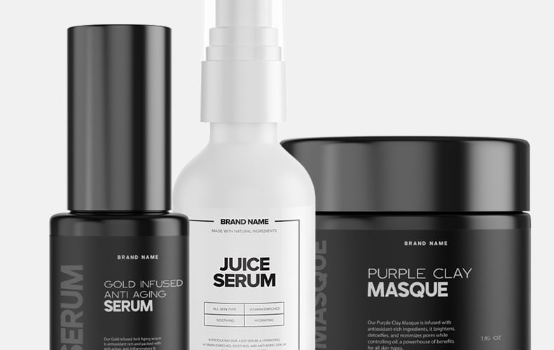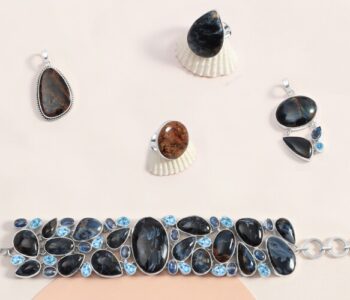 Business
Business
Private Label Products Crafted to Elevate and Empower Your Brand
- by sbellus
Private label products are revolutionizing the way businesses build authority and increase profit margins. In a marketplace saturated with generic goods, creating your own line of private label products helps your brand stand out, boost customer loyalty, and take control of your brand identity.
Whether you’re a new entrepreneur or a seasoned retailer, launching your own private label product line offers a cost-effective and powerful way to scale. Let’s explore everything you need to know to get started, grow, and dominate your niche.
Table of Contents
-
What Are Private Label Products?
-
Why Private Labeling is Booming in 2025
-
Key Benefits of Private Labeling for Your Business
-
Industries Where Private Label Products Thrive
-
How to Choose the Right Manufacturer
-
Branding Tips for Your Private Label Line
-
Pricing Strategies That Maximize Profit
-
Marketing Your Private Label Products
-
Common Pitfalls to Avoid
-
How to Launch Your First Private Label Product
-
Conclusion
-
FAQs
What Are Private Label Products?
Private label products are manufactured by one company but branded and sold under another company’s label. As a business owner, you control the branding, packaging, pricing, and marketing—while a third-party manufacturer handles production.
Why Private Labeling is Booming in 2025
Private labeling is growing rapidly in 2025 due to several key factors:
-
E-commerce platforms like Amazon, Etsy, and Shopify simplify product distribution.
-
Consumers trust niche brands over generic big-box options.
-
Small businesses gain access to low minimum order quantities and flexible production terms.
Key Benefits of Private Labeling for Your Business
Here’s why launching private label products can empower your brand:
✅ Higher Profit Margins
With fewer middlemen, you enjoy better margins compared to reselling established brands.
✅ Full Control
Design, branding, and positioning are entirely up to you, giving you full ownership of your product’s perception.
✅ Customer Loyalty
Unique offerings encourage repeat purchases and build a dedicated customer base.
Industries Where Private Label Products Thrive
Private label products perform well in various markets. Here are some of the hottest niches in 2025:
-
Beauty and Skincare: Custom lotions, serums, and cosmetics
-
Supplements and Wellness: Vitamins, protein powders, and herbal remedies
-
Pet Supplies: Grooming products, toys, and health supplements
-
Home and Kitchen: Cookware, candles, and organization tools
-
Fashion and Apparel: Clothing lines, accessories, and activewear
How to Choose the Right Manufacturer
Choosing the right supplier is crucial for your success. Consider these when sourcing a manufacturer:
-
Certifications (GMP, ISO, FDA if required)
-
Minimum Order Quantities (MOQs)
-
Lead times and turnaround
-
Ability to white-label
-
Product quality assurance
Tip: Start with samples to verify quality before committing to bulk production.
Branding Tips for Your Private Label Line
A strong brand identity will help your private label products shine. Focus on:
🎯 Logo and Packaging Design
Hire a professional designer or use tools like Canva or Adobe Express to make visually stunning branding elements.
🧠 Storytelling
Communicate your brand’s mission, values, and backstory clearly on your packaging and website.
🌟 Customer Experience
Invest in great unboxing experiences, clear instructions, and follow-up emails for long-term success.
Pricing Strategies That Maximize Profit
To price your private label products effectively:
-
Calculate your costs: Include manufacturing, shipping, packaging, and marketing.
-
Research your competitors: Understand market rates for similar items.
-
Set tiered pricing: Offer bundles or subscription models for added value.
Marketing Your Private Label Products
Use these marketing channels to launch and scale:
-
Social Media Ads (Facebook, TikTok, Instagram)
-
Email Marketing (automated welcome sequences and promotions)
-
Influencer Collaborations
-
SEO Blog Content targeting your niche keywords
-
Affiliate Marketing Programs
Common Pitfalls to Avoid
When launching private label products, beware of these common mistakes:
-
Poor manufacturer vetting
-
Overcomplicated product packaging
-
Ignoring customer feedback
-
Underestimating marketing costs
-
Failing to test the product before launch
How to Launch Your First Private Label Product
Here’s a simplified roadmap:
-
Choose a Niche: Focus on a specific need or gap in the market.
-
Find a Supplier: Use directories like Alibaba, SaleHoo, or ThomasNet.
-
Design Your Branding: Create a logo, packaging, and online store presence.
-
Place a Small Test Order: Validate the product with a test group or soft launch.
-
Set Up Sales Channels: Shopify, Amazon FBA, Etsy, or your own website.
-
Launch and Promote: Use ads, influencers, and email marketing to generate sales.
-
Collect Reviews and Optimize: Iterate your offer based on real feedback.
Conclusion
Private label products offer one of the most powerful and scalable ways to build your brand, gain full control, and increase your bottom line. With the right manufacturer, strategy, and branding, you can carve out a profitable niche and become a go-to name in your industry.
If you’re ready to create products that reflect your brand’s values and vision, there’s never been a better time to get started.
Frequently Asked Questions (FAQs)
1. What are private label products?
Private label products are items manufactured by a third party but sold under your brand name. You manage the branding and pricing.
2. Are private label products profitable?
Yes, they often offer higher profit margins since you’re not paying for someone else’s brand name.
3. How much does it cost to start a private label?
Startup costs vary but can begin as low as $500 for small test runs and basic branding.
4. Where can I find private label suppliers?
Popular platforms include Alibaba, Printful, Faire, and ThomasNet. Vet each one carefully.
5. Can I sell private label products on Amazon?
Absolutely. Amazon FBA is one of the most popular platforms for selling private label products.









